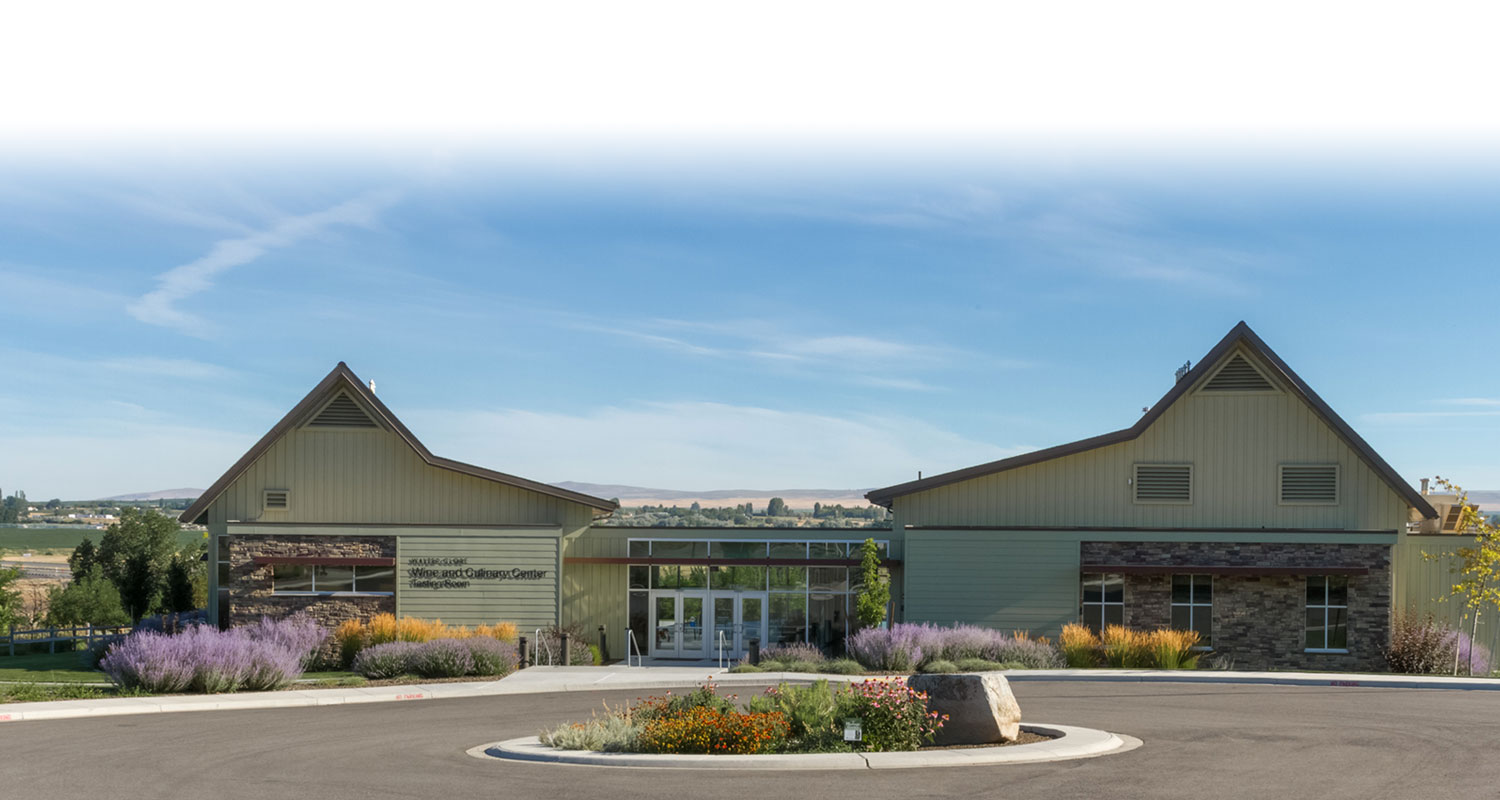Port of Benton seeking new operator for
Walter Clore Wine and Culinary Center
EDITOR’S NOTE: This article first appeared in the November, 2020 Issue of the Tri-Cities Area Journal of Business and is being published here with the permission of TCAJ0B. To read the original article, click here: https://www.tricitiesbusinessnews.com/2020/11/walter-clore-closed.
By Wendy Culverwell
The Port of Benton is seeking a new operator for Prosser’s Walter Clore Wine and Culinary Center after the nonprofit that established the wine industry showplace vacated the property because of the Covid-19 pandemic.
The port, which owns the taxpayer-funded wine and event center, pledged to move quickly to find a new partner to continue its mission.
Diahann Howard, executive director of the Port of Benton, said the port is committed to fulfilling terms of the federal Economic Development Administration grant that helped build the $4 million center at 2140 Wine Country Road in Prosser, WA., in 2011.
If it does not, the EDA grant has to be repaid. Ten years remain on the contract.
Greg Robertson, chairman of the Clore Center board, said the operator struggled to use the property as intended – as an educational showcase for the state’s wine industry.
Washington wineries shipped 12.4 million cases of wine in 2019 and the industry was responsible for $8.4 billion in economic activity in 2012, when the last impact study was conducted.
The Clore Center had to compete with wineries themselves – most have private tasting rooms and event centers to tell their stories.
The center, named for the late Prosser winemaker considered the “father” of the Washington wine industry, is a 15,000-square-foot building blending educational displays with hospitable touches such as a tasting room, commercial kitchen and event center.
By 2019 it was struggling. Robertson said there was reason to be optimistic about 2020. The center curbed costs and jobs, positioning itself for a rebound.
By January, 2020, the virus that causes Covid-19 had spread across the Pacific, first showing up in the U.S. in the Puget Sound area. Scheduled events were canceled en masse.
“When Covid hit Seattle, I knew something could happen,” Robertson said.
By February, all major meetings – the core of its business – were postponed or canceled. It hosted a handful of essential meetings. It was essentially closed when Washington Gov. Jay Inslee issued the Stay Home, Stay Healthy order in March.
Benton County entered a modified version of Phase 1 of the Safe Start program in late July, which technically allowed wineries to operate under Phase 2 guidelines, offering limited wine tastings. That could have opened the door to activity, but Robertson said area wineries did not return to the Clore Center.
“We don’t have a sustainable operation at this point,” he said.
In August, it announced it would close its tasting room. On Oct. 8, the board notified the port it would vacate the building and terminate its operating agreement by Dec. 31.
Robertson and the board pledged to support the port to ensure the Clore Center remains an asset to Prosser and the wine industry.
“We’re trying to be cordial about our exit,” Robertson said. “Nobody has any bad feelings about the port.”
Howard praised the Clore Center board for communicating its financial challenges to the port. The Oct. 8 notice to vacate gave it ample time to plan.
It will assess the building’s condition and do what needs to be done to ready it for the next operator.
“That lets us explore other options to meet industry needs,” said Howard. “We will hold the spirit of the Clore Center and fill it with a tenant to support the mission.”
One option is off the table: The Walter Clore Center is not for sale.
Visit Tri-Cities, the region’s tourism marketing bureau, lamented the closure. The Clore Center is a key part of the wine industry, which in turn is a key pillar of the region’s $500 million tourism economy and the 5,600 jobs it supports.
But those figures are from 2019. Tourism is down about 40%, on par with the national average of 45%, said Michael Novakovich, president and chief executive of Visit Tri-Cities.
“It’s pretty easy to connect the dots. When the Stay Home, Stay Healthy order happened, people stayed home,” he said.
Novakovich looks forward to seeing the center reinhabited. It’s an integral part of the Lower Yakima Valley wine circuit. It greets visitors who stop in Prosser. It paints the bigger picture of Washington wine and introduces tourists to multiple wine brands.
“That just primes the pump for visitors to keep coming down the Valley,” he said.
The Clore Center made its debut in 2011 following years of planning. The $4 million budget was funded with a combination of state and federal grants and fundraising by the volunteer board.
The Washington State Wine Commission said the Clore Center served the industry well, bringing in countless trade and media groups over the years.
“The center was a tremendous champion of the Washington wine industry, and a place to learn about our history, taste Washington wines and gather with friends and colleagues,” said Steve Warner, the commission’s president. He said the industry will carry out its mission.
Miles Thomas, the port’s economic development director, is mindful that the Walter Clore Center was built on the passion and financial support of the industry. He is reaching out to those individuals to map out a strategy to move forward.
The port hopes to lay out a new vision by the first quarter of 2021.
“We remain very optimistic about it,” said Howard.


